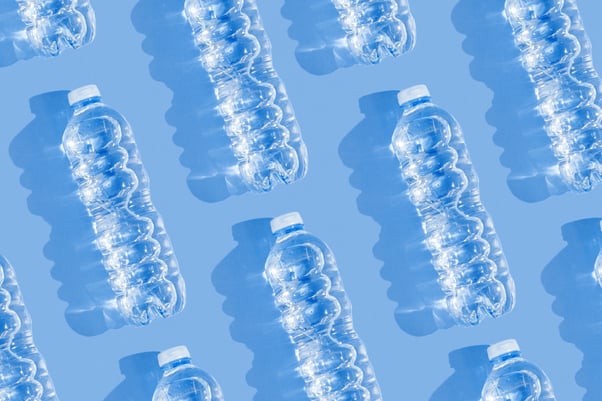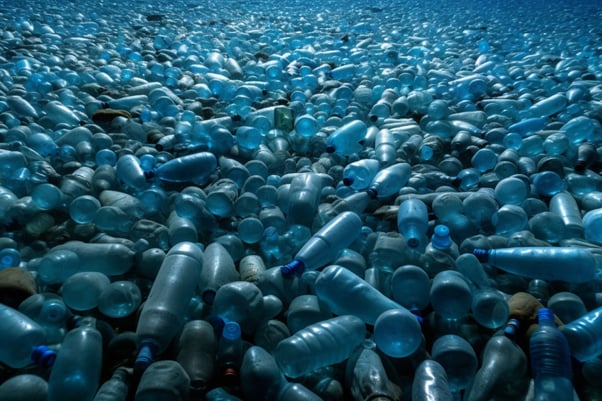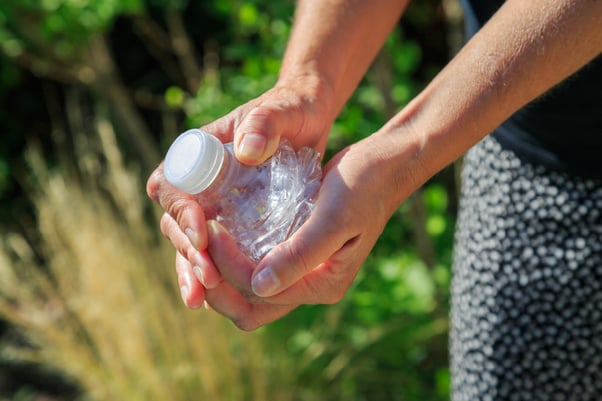
The idea that we need to recycle more is no longer controversial and most of us would like to do so. In practice, though, those good intentions aren’t always realised. The real battle now is making recycling easier, and a new technology may become the not-so-secret weapon. Read on as we introduce the smart bin.
Why is Recycling Important?
Most models for environmental action are based on a three-pronged approach: Reduce, Reuse and Recycle. The first two may have longer-lasting effects, but the recycling element is where it should be easiest for consumers to make immediate changes.
In the Middle East, plastic bottles are a key example of a significant and solvable environmental problem. The average UAE citizen uses more bottled water than in any other country, an estimated 450 plastic bottles a year. Ironically, plastic production is so inefficient that 90 percent of the manufacturing cost of bottled water is the bottle itself.
Sending bottles to waste simply isn’t a viable environmental approach: incineration releases toxic gas while sending it to landfills risks contaminating soil and water.
 The estimated recycling rate of plastic bottles in the UAE is just 20 percent. That’s particularly wasteful as bottles can be efficiently recycled into everything from plastic fibres for textiles to new, food-grade bottles.
The estimated recycling rate of plastic bottles in the UAE is just 20 percent. That’s particularly wasteful as bottles can be efficiently recycled into everything from plastic fibres for textiles to new, food-grade bottles.
Imdaad is among the companies tackling the problem. Our Farz Materials Recovery Facility is the leading and most efficient facility of its type in the region, turning waste into a host of commercially reusable products.
Why Are Consumers Resistant to Recycling Bottles?
Most people are now aware that single-use plastic bottles are problematic, but it’s also true to say that they are convenient and, in a hot country like the UAE, having drinking water close at hand is considered a necessity by many. These bottles are such an everyday product in UAE that many people do not even stop to think about how to dispose of them responsibly. Habit and in some cases, a lack of awareness of the consequences stop many people from recycling.
Authorities and other organizations have made great efforts to educate the public about the issues around plastic and some great progress has been made but there is still much work to be done.
At the same time, a lack of facilities can make recycling seem too much of an effort, while many people are uncertain exactly what can and can’t be recycled. It’s also such a large-scale problem that it’s often hard to know if you’re making any difference.
The Smart Bin Solution

Imdaad is launching a trial of smart bins, starting with some healthcare locations in Dubai. To reduce costly sorting, the bins will only open to accept PET plastic bottles, identified by a barcode scanner.
The scanner will also collect a wealth of data about the bottles to improve overall recycling. They’ll produce precise numbers of the numbers of bottles recycled (and the relevant savings in emissions and raw materials). The data will also show which bins fill up quickest, potentially revealing patterns about where and how people are prepared to recycle.
The technology could also be used for a reward scheme with users able to track exactly how many bottles they have recycled. Incentivization could include social cues such as contests or more tangible rewards like vouchers or discounts on purchases.
The bins can also weigh the bottles and estimate how full or empty they are when disposed of. This will lend more insight into theories that some UAE citizens take bottled water so much for granted that they casually throw bottles away before finishing them. That could reveal whether wider campaigns for cultural and behavioral changes are indeed necessary.
Bottle barcodes will also make it possible to track the entire recycling process, giving a clearer insight into the actual transportation and processing energy costs compared with producing new bottles from scratch. That could strengthen the argument for recycling.
Imdaad will analyze the initial results from the trial before deciding on the next step, though the working assumption is for a wider roll-out. It’s all part of Imdaad’s wider commitment to environmental responsibility. We believe it makes sense on multiple levels: to benefit society, to meet Dubai’s national vision, and as a smart business move in its own right.
In Conclusion
Smart bins look set to play an important part of the UAE’s overall recycling strategy. Both in terms of their direct effect and for proving the concept that technology can improve recycling rates by influencing behavior. Nobody is pretending bins with barcode scanners will be a complete answer in themselves, but they could show the way to a wider solution and engage consumers.
Keep your eyes out for more smart bin sites across Dubai and UAE as the project expands. In the meantime, contact us with any questions you have about the technology.

